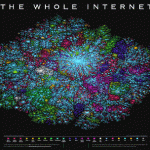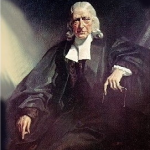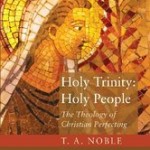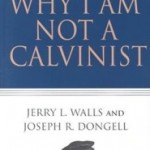On Having a Single Faith Journey
I see the development of my faith as a connected story. I don’t see it as a matter of once having a certain type of faith and then graduating or switching to another sort of faith. I am thankful to the people who shared the Gospel with me. I am seeking to extend that journey of faith the best I can — as honestly and truthfully as I can.
 Yeah, I heard the Gospel among people who talked about entire sanctification in a way that led to some confusion and frustration. Yeah, there were a number of ideas I am sure I picked up from the conservative Christian culture that I later needed to revise or even reject. Sure — though I think I was always skeptical of that “Rapture” (“A Thief in the Night”) teaching that was so much a part of evangelical Christianity in those days.
Yeah, I heard the Gospel among people who talked about entire sanctification in a way that led to some confusion and frustration. Yeah, there were a number of ideas I am sure I picked up from the conservative Christian culture that I later needed to revise or even reject. Sure — though I think I was always skeptical of that “Rapture” (“A Thief in the Night”) teaching that was so much a part of evangelical Christianity in those days.
As I said recently, I see my own faith journey as one story — even though it has taken some unexpected twists and turns.
It is only natural that faith grows and develops. And, the Church ought to be a place where people can explore new ideas and new understandings. It often isn’t, I know, — but I think it should be. New information always raises new questions. Sometimes new information forces us to develop and adopt new paradigms. It’s only natural. But, we should always be open to new information.
I look at it this way. When I took introductory courses in chemistry I learned things that later had to be unlearned to some extent. When I first learned chemistry, teachers were still using the idea of “valences” to explain why certain atoms came together in certain combinations, to form molecules. (I imagine introductory chemistry is not still taught that way.) When students finally move on to advanced inorganic chemistry (for example) they learn that, in fact, the theory of valences is wrong and that the realities of chemical bonding are far more complicated than that. One paradigm has to give way to another. The new paradigm is able to accommodate more information but it is also more complicated, and thus, more difficult to learn and to understand.
 In introductory chemistry students learn the Universal Gas Law (PV=nRT). This relates the values of pressure, volume and temperature of a gas to one another. So, if you know V, n and T you can solve for P. And, so forth. It works. But, then again, it doesn’t. Different gases behave slightly differently — so the value of “R” would be slightly different for one gas than for another — in order to make the formula work. Are you with me so far? Well, now it gets worse. As students take Chemical Kinetics they explore the relationships of the molecules to one another using advanced mathematics to describe the effects of changes in pressure, volume, and temperature. Yes, PV=nRT is a good approximation of what is going on, but the reality is more complex than that. Except these calculations aren’t right either. The calculations done in Chemical Kinetics are rooted in a now-outmoded Newtonian worldview in which molecules are assumed to be round spheres, that collide with one another, and whose interactions can be described in ways that are similar to the interactions of a collection of ping pong balls. We now know that the interactions of molecules, atoms and sub-atomic particles need to be described through Quantum Mechanics — which gets us into even more complicated mathematics.
In introductory chemistry students learn the Universal Gas Law (PV=nRT). This relates the values of pressure, volume and temperature of a gas to one another. So, if you know V, n and T you can solve for P. And, so forth. It works. But, then again, it doesn’t. Different gases behave slightly differently — so the value of “R” would be slightly different for one gas than for another — in order to make the formula work. Are you with me so far? Well, now it gets worse. As students take Chemical Kinetics they explore the relationships of the molecules to one another using advanced mathematics to describe the effects of changes in pressure, volume, and temperature. Yes, PV=nRT is a good approximation of what is going on, but the reality is more complex than that. Except these calculations aren’t right either. The calculations done in Chemical Kinetics are rooted in a now-outmoded Newtonian worldview in which molecules are assumed to be round spheres, that collide with one another, and whose interactions can be described in ways that are similar to the interactions of a collection of ping pong balls. We now know that the interactions of molecules, atoms and sub-atomic particles need to be described through Quantum Mechanics — which gets us into even more complicated mathematics.
But, when students learn that valences are not true, or that the the relation of pressure, volume and temperature in a gas are far more complex than PV=nRT; this does not involve loosing faith in basic chemistry. People don’t say: “oh, I was raised in basic chemistry. I’ve left that behind. Now, I’ve moved on to advanced chemistry. I can’t believe I was ever so naive that I believed that stuff.” And, so forth.
But, we do say things like that about our Christian faith journeys. (Well, I don’t — or I certainly try not to.)
A naive Christian faith will naturally fall into to naive understandings of the faith — simple concepts that explain (or promise to explain) a lot. A naive Christian faith will naturally have a naive conception of the Bible. Bible study — which includes study of the Bible’s history — will dispel that condition. It’s not like losing your faith — and shouldn’t be seen that way. It is a matter of informing your faith.
 But, here is the problem (as I see it): some Christian communities make certain naive conceptions into standards of right belief. There are some churches you can’t be a part of if you don’t believe in the pre-tribulational Rapture of the Church. Some churches believe the King James Version is the only inspired Word of God. Some churches insist on a literalistic reading of the imagery of the Bible’s creation narrative — thus, rejecting the science that lies behind the theory of evolution in biology. And, from my point of view, the same mistake is made with regard to dictation and inerrancy theories about the Bible. The problem with these views is that they don’t work. The more we know, the less they work. People raised in these groups discover, to their dismay, that they must abandon their “faith” in order to grow in their knowledge.
But, here is the problem (as I see it): some Christian communities make certain naive conceptions into standards of right belief. There are some churches you can’t be a part of if you don’t believe in the pre-tribulational Rapture of the Church. Some churches believe the King James Version is the only inspired Word of God. Some churches insist on a literalistic reading of the imagery of the Bible’s creation narrative — thus, rejecting the science that lies behind the theory of evolution in biology. And, from my point of view, the same mistake is made with regard to dictation and inerrancy theories about the Bible. The problem with these views is that they don’t work. The more we know, the less they work. People raised in these groups discover, to their dismay, that they must abandon their “faith” in order to grow in their knowledge.
And, this just should not be. Christianity should inspire the search for knowledge, not hinder it.
I do not feel I have abandoned evangelical Christianity because I have been forced to revise some of the ideas I had when I began my faith journey. I am thankful for the people who set me on this road. They didn’t know everything and neither do I. New information sometimes forces re-thinking. It may force something more like a paradigm shift. And, yes, that is difficult, but it helps when there is a supportive community around you — and when people don’t reject you for asking difficult questions.
The Christian faith is a journey — a journey in knowledge and faithfulness. I think it is helpful to see it as and unfolding journey, a single journey, rather than a series of disruptive changes. Affirm where you were and affirm where you are now. Come to a sense of peace about the road that has led you there.

















Such an excellent post ! ! ! “But, here is the problem (as I see it): some Christian communities make certain naive conceptions into standards of right belief.” Nicely put!
My faith journey has been quite the ride. From being raised a Southern Baptist, and thinking that only within the framework of a Southern Baptist worldview is my salvation secured, I began to think that embracing any other tradition would mean that I was not as close to God, or worse, that I was not obeying God. I’m not kidding: I’ve wrestled with this even within the last couple of years! I hate it. I feel as though I’ve been spiritually manipulated for years.
Only recently — and I mean within the last couple of months — have I finally been able to break away from feeling that my salvation, or my relationship with Christ, was predicated upon being a conservative, religious right Southern Baptist. (Does that not sound like what people in a cult have experienced?) I found out that God is NOT a Southern Baptist (or Episcopalian, or Methodist, or Pentecostal, etc.).
You then write: “And, this just should not be. Christianity should inspire the search for knowledge, not hinder it.” That so very much resonates with my soul. I’m so glad you shared this today. This was merely the further confirmation I needed to seek Him along this journey and not merely or necessarily a tradition.
I have carried my gratitude for the Holiness and Pentecostal Christians who first shared the Gospel with me (and first modeled the Christian faith for me) into the later stages of my journey. In my own mind I still consider myself an evangelical, though it is true that there are some fellowships where I would feel very uncomfortable — and its true that if Albert Mohler or John McArthur (just to name two) were the gatekeepers, then I’d be outside the gate (and glad to be). I don’t feel cheated or betrayed — though it is very true that people do try manipulation. I somehow broke out of the mind control a long time ago — maybe I am just too naturally skeptical to be easily controlled. And, now I’m just grateful.
Then, in my future journey, I hope to arrive at gratefulness for the good I was taught instead of bitterness.